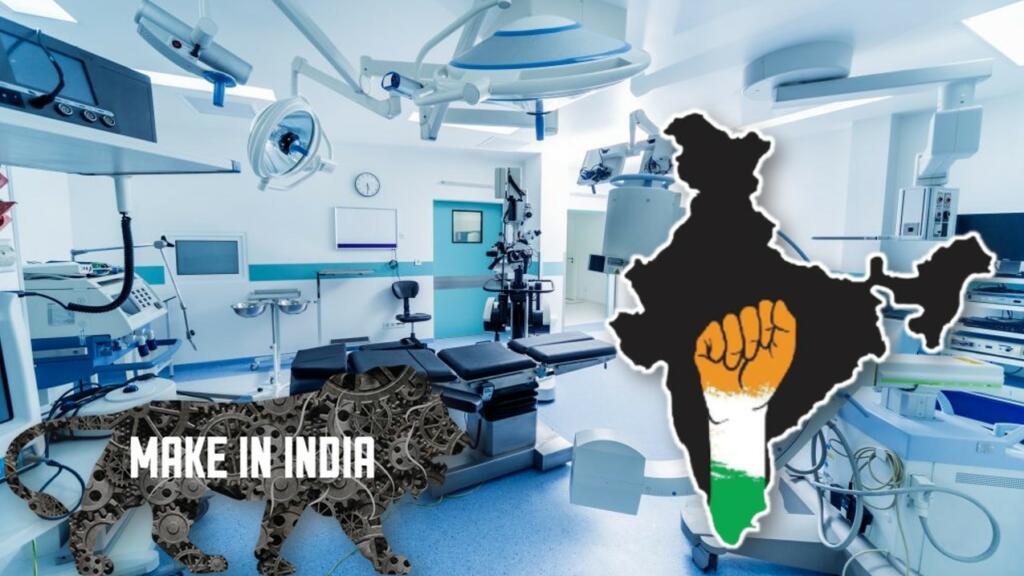For decades, India has been dependent on imports for medical devices. However, after Covid hit, when many countries stopped the export of medical equipment, the Indian government realized the importance of having a robust indigenous industry.
India’s unfortunate dependency on other countries
India is also dependent on non-friendly countries like China for imports, and also the United States, which is not a trusted partner as seen during Covid.
“Studies have shown that 80 per cent of the medical devices across all specializations of medicine used in the country are imported. Most of them are either from United States, UK, Germany or Japan and now increasingly also from China,” says R Krishna Kumar, Institute Professor, the department of engineering design at the Indian Institute of Technology (IIT), Madras.
Government’s initiatives to develop indigenous medical equipment industry
Since Covid, the government has launched various schemes including Production Linked Incentive (PLI) for investment in the medical devices industry. Also, a Scheme for the Promotion of Medical Devices Parks was launched by the government.
As of last fiscal year, India imported medical devices worth 5.6 billion dollars and exported the same worth 2.5 billion dollars. Given the double-digit growth in the demand for medical devices, if the indigenous industry is not developed, the imports will only increase.
Therefore, the government released the draft National Medical Device Policy, 2022 with the aim “to reduce import dependence from 80% to below 30% in next 10 years and ensure self-reliance quotient of 80% in Med-Tech by ensuring Make in India with SMART milestones”.
Investors are enthusiastic
Since the last few months, many investors – especially those who align their investment decision with government policy like Sridhar Vembu led Zoho – are already making investments in medical devices companies.
Read More: Meet Shridhar Vembu: One of the most successful yet humble entrepreneurs
Chennai-headquartered Indian software-as-a-service (SaaS) firm Zoho Corporation has invested $5 million (about ₹35 crores) in a Bengaluru-based medical devices company Voxelgrids, which makes magnetic resonance imaging (MRI) scanners. This partnership between Zoho and Voxelgrids is going to revolutionize the Indian Pharmaceutical Industry and is a big step towards an ‘Aatmanirbhar’ Bharat.
Voxelgrids was founded in March 2017 by Arjun Arunachalam, who has nearly two decades of experience in the field. He had previously worked as lead scientist at GE Corporate Research in the US and previously an assistant professor at the Indian Institute of Technology (IIT), Bombay.
Read More: India is a huge Pharma hub but doesn’t have a medical equipment industry. It is changing now
DeepTech ecosystem is the need of the hour
One of the pressing concerns for the Indian economy is the lack of indigenous industrial know-how and manufacturing capabilities which compels them to be dependent on imports.
A healthy DeepTech ecosystem is vital to solving this issue and driving structural economic change. Voxelgrids is one of the few companies that is working to solve this problem with MRI machines entirely built in India.
The government is incentivizing the companies to make products in areas where India is dependent on imports, especially if it is in critical areas such as semiconductors, API etc.
Built upon PLI scheme
Previously, to build a resilient supply chain and end dependence on China for critical materials, the government announced a 7,000 crore rupees production-linked incentive (PLI) scheme to promote domestic manufacturing of API or raw materials that are used to manufacture drugs.
As per the Department of Pharmaceuticals, Ministry of Chemicals and Fertilizers, “India is significantly dependent on import of some of the basic raw materials, viz., bulk drugs that are used to produce the finished dosage formulations.”
Also Read: Modi government expands API scheme to kick China out of the Pharmaceutical sector
Bulk drugs account for 63 per cent of total pharmaceutical imports of the country. India is largely self-dependent in end-product manufacturing but for raw materials, it depends on imports from China.
Through the new National Medical Devices Policy, the government aims to promote research, foster innovation, and incentivize the firms investing in the sector. During Covid, students from IIT-Kanpur produced better and cheaper ventilators within months. If the government provides an opportunity, Indian entrepreneurs will definitely rise to the occasion.
